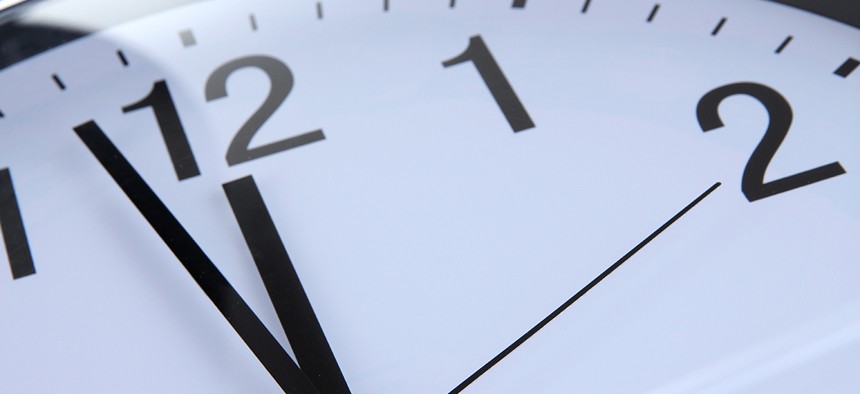
Africa Studio/Shutterstock.com
The culture of working enormously long hours is ingrained in many workplaces. But for men in particular, it also has a lot to do with comparing themselves to peers. When men don’t work as much as colleagues and friends, they report being unhappy and shift their work schedule to match or better them, according to a new working paper from researchers at Maastricht University and Erasmus University in the Netherlands.
And that peer-matching isn’t about being as productive. It’s all about perceived status. The authors call it “conspicuous work.” The study looks at more than a decade of data from working men in the Netherlands whose peers generally also worked. They had data on people’s work hours, their perception of their peer’s hours, and their self-reported happiness.
The first major finding, that people’s work hours scale with their peers, could be explained by a few possible things. Working with others is more productive and pleasant than working alone, so people tend to work about the same amount. Plus, people generally like to conform to societal norms, and peer work hours are a good proxy for those expectations. The last, the conspicious work model, suggests that people get extra status from being a “hard worker,” and are unhappy when others are conspicuously busier.
The finding that men grow progressively unhappier as their peers work more, controlling for their own hours, indicates that the choice to work is wrapped up in status and personal comparison, and supports the conspicuous work model.
This is, of course completely divorced from whether that work is productive. It leads to a norm where people who don’t conform to these work hours can be seen as failing to fit a company culture. Another recent study found that many people go to elaborate lengths to convince everybody around them that they’re working the same insane hours. People who admit that they want a more normal schedule are often punished.
This comes against a backdrop of recent data (paywall) that shows work hours increasing overall, and that it can contribute to gender inequity.
The one bright side? There appears to be limits. People don’t gain much from working substantially more than colleagues, and those extra hours have negative consequences on quality of life. So true workaholics are likely to be rare.
(Image via Africa Studio/Shutterstock.com)
NEXT STORY: Immigration Advocates Place Their Faith in Obama






